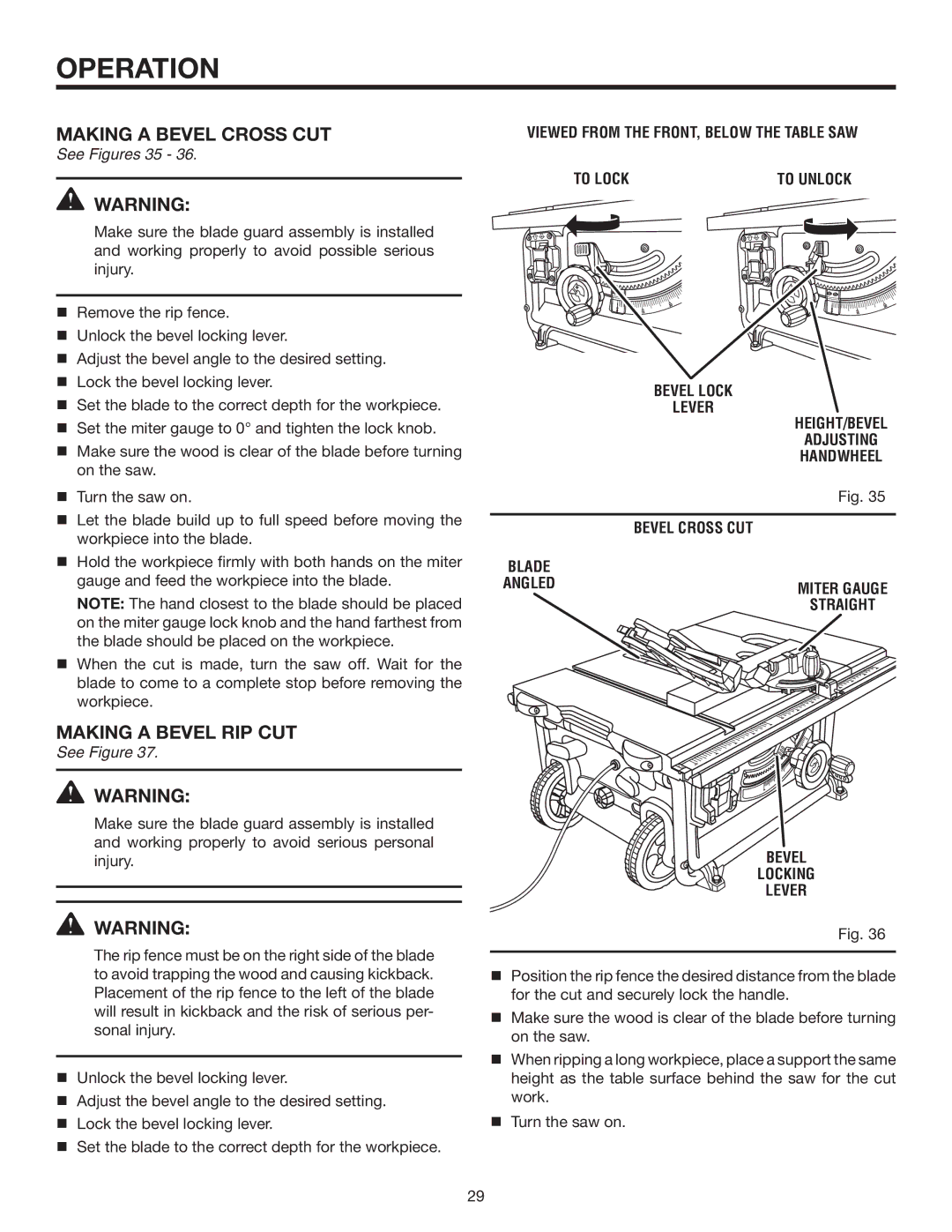
OPERATION
making a bevel cross cut
See Figures 35 - 36.
![]() WARNING:
WARNING:
Make sure the blade guard assembly is installed and working properly to avoid possible serious injury.
Remove the rip fence.
Unlock the bevel locking lever.
Adjust the bevel angle to the desired setting.
Lock the bevel locking lever.
Set the blade to the correct depth for the workpiece.
Set the miter gauge to 0° and tighten the lock knob.
Make sure the wood is clear of the blade before turning on the saw.
Turn the saw on.
Let the blade build up to full speed before moving the workpiece into the blade.
Hold the workpiece firmly with both hands on the miter gauge and feed the workpiece into the blade.
Note: The hand closest to the blade should be placed on the miter gauge lock knob and the hand farthest from the blade should be placed on the workpiece.
When the cut is made, turn the saw off. Wait for the blade to come to a complete stop before removing the workpiece.
making a bevel rip cut
See Figure 37.
![]() WARNING:
WARNING:
Make sure the blade guard assembly is installed and working properly to avoid serious personal injury.
![]() WARNING:
WARNING:
The rip fence must be on the right side of the blade to avoid trapping the wood and causing kickback. Placement of the rip fence to the left of the blade will result in kickback and the risk of serious per- sonal injury.
Unlock the bevel locking lever.
Adjust the bevel angle to the desired setting.
Lock the bevel locking lever.
Set the blade to the correct depth for the workpiece.
VIEWED FROM THE FRONT, BELOW THE TABLE SAW
TO lock | TO unlock |
bevel lock
lever
height/bevel
ADJUSTING
HANDWHEEL
Fig. 35
BEVEL CROSS CUT
BLADE
ANGLEDMITER Gauge
STRAIGHT
BEVEL
LOCKING
LEVER
Fig. 36
Position the rip fence the desired distance from the blade for the cut and securely lock the handle.
Make sure the wood is clear of the blade before turning on the saw.
When ripping a long workpiece, place a support the same height as the table surface behind the saw for the cut work.
Turn the saw on.
29
